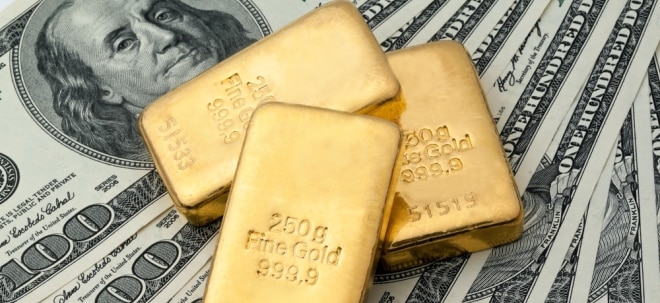euch mal die Zeit und lest diesen Artikel:
Markets are bracing for what could well turn out to be THE most dramatic day ever seen. Yes, perhaps even more so than the fireworks of last week.
Several situations are brewing all at once:
Washington Mutual has been seized by the FDIC (Federal Deposit Insurance Corporation), and its client accounts are in the process of being taken over by JP Morgan. Account holders are being assured that they will have access to their funds; however this is – officially – the biggest bank failure ever in history.
Fortis is under fire from the media and from shareholders. They maintain that they are solvent and have adequate access to liquidity lines (which they say they cannot reveal due to non-disclosure agreements they have signed), however as we've seen with other giants recently, public opinion and shareholder confidence may well hold more importance than balance sheets, no matter how sound.
Which bank is safe? I hate to be an alarmist, but these days the Bank of UTM (under the mattress) seems like a worry-free alternative, as does gold and silver. Those options aside, I would look to the larger, more populist banks. Stay away from private, corporate or investment banks - the ones which serve millions of depositors are the ones least likely to fail (unless there's a run on them), and also the most likely to be bailed out in an emergency. Bank of America, Deutsche Bank, Credit Suisse, Barclays, HSBC, etc. Oh, and JP Morgan Chase of course - being founding members of the Fed I suspect they'll do alright (this is now the second “acquisition” that the government has helped them do).
Like most of the market action this month, there is a danger that emotions may take the day. Certainly, we are no closer to a bail-out deal from the US Congress. However it is important to be clear on the facts here. Congress is doing a GOOD thing. I have listened to over 12 hours of testimony these past 3 days, and I like the questions being raised and the suggestions being made. Secretary Paulson has requested $700 billion with no conditions, no measure of success, to be given over to the very people who created this mess in the first place. Where every prior bail-out has failed to turn things around. Instead they have somehow been absorbed in 12 million dollar executive salaries, rewards for failure (results can command any salary the market is wiling to pay, but I fail to see why taxpayers should reward failure - their livelihoods are being jeopardized, not assisted as a result).
Paulson would have the taxpayer absorb all of the risk, and share in none of the potential rewards. The people who caused the mess would profit from it. The questions congress is asking are good ones, the safeguards and regulations they are proposing much-needed. I believe what is needed is a bail-out of Main St., not Wall St. – let’s make sure people’s mortgages are paid and their jobs are safe - and it should be done under conditions closer to those Warren Buffet negotiated when taking his recent $5 billion stake in Goldman Sachs. And if it takes a little extra time to make that deal one worth the taxpayers investing their hard-earned money in, then it should be taken.
And at the risk of this degrading into a political rant, I think that Republicans need to stop playing school yard games and come back to the negotiating table. Debate is HOW good deals are made, so come back and bring in some good ideas. "My way or the highway" is not the mindset to employ in a time of crisis when your nation needs you.
Most of this mess is a direct result of the Securities Modernization Act of 1999, which stripped away protections put in place after the Great Depression in order to prevent a similar event from ever happening again. The architect of this piece of legislation was Phil Gramm, a darling of investment bank lobbyists. He is John McCain's top economic advisor, and a likely candidate to be the next Secretary of the Treasury.
Someone once said that "America's capitalist markets will survive, so long as the government is willing to employ a bit of socialism from time to time to bail them out."
But as I've already said, a crisis is a time for solutions not politics. I am merely sharing facts. And Obama has yet to produce alternative ideas either. But I will suggest that we have a track record, and walking further down the same path gets more and more dangerous every day. What America needs is a diplomat, not another war - for I suspect in order to get through this crisis, America will need friends and help from abroad. Friends much alienated by the past 8 years.
What does all this chaos mean for the Dow?
10828 remains a critical key level to watch. If further news of the deal stalling hits the markets, we could see a sharp fall - and if 10828 fails to hold as support (and especially if it re-tests as resistance), then we could well see the Dow enter 4-digit territory and work its way down to 9948 in the weeks ahead.
If instead an agreement can be reached, and quickly put into action, we might see a rally take us up to 11371. But before we can all breathe a collective sigh of relief, however, we would need to see prices above 11708, and showing signs of finding some support there. Coming up with a plan and seeing it actually work are two different things, after all - and the latter will likely need 6 to 12 months. At least.
Chart: http://mediaserver.fxstreet.com/Reports/271a6b36-abf4-4a14-9...
The US Dollar's movements are at this time hard to predict. There may be panic sellers, influenced by the Dow and by murmurings of decoupling from the currency by Saudi Arabia and the UAE. The shakier America's ground gets, the more foreign investors will likely pull out and governments look to other reserve currencies like gold, the Euro (if it can conquer its own problems) or the Swiss Franc. On the other hand, we DO find ourselves in a crisis of liquidity. That means cash. And the rules of supply and demand still apply.
To help lighten the mood as we head into the weekend, have a peek at this:
http://www.youtube.com/watch?v=ipJTqCbETog
Andrei Pehar
fxKnight.com | BK Strategic Capital
Comment Comment
Disregard articles by members listed on this page
Business and markets > Currency Trading - Strategies for ... > Forums > Market News & Rumors
Top
-----------
Das Leben ist wie ein Papierflugzeug, sitzt du drin und es regnet dann bist du am Arsch(In Englisch klingt das besser:)) |


 Thread abonnieren
Thread abonnieren


